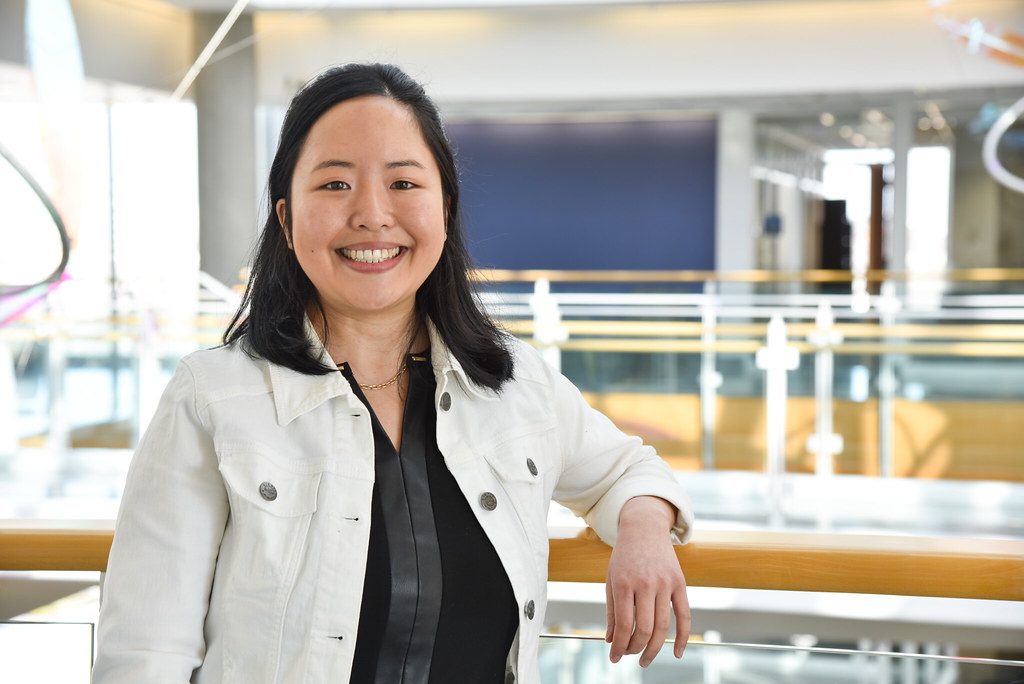
By Beni Adelstein | Bond LSC
Research skills aren’t built in a day, but Cynthia Tang’s diligence brought those skills to bear as she recently received a National Institutes of Health fellowship to further her budding career in science.
“Receiving the F30 fellowship means that the NIH sees value in my research proposal, in my training environment at the University of Missouri, and in my potential to become an independent physician-scientist,” said Tang, who works in Henry Wan’s lab at Bond Life Sciences Center.
This F30 predoctoral fellowship supports the research of students pursuing M.D.-Ph.D.’s. These awards help lighten the financial burden of a degree path that takes the better part of a decade for Tang and others pursuing their passions in research.
Tang came to the University of Missouri in 2018, started her journey as an M.D. student, then took a break to pursue her Ph.D. In the dual M.D.-Ph.D., the first two years are spent in pre-clinical studies followed by a full-time Ph.D. for three to five years and then students finish up with clinical training.
So, what project captured NIH’s attention?
Tang focused on how Covid-19 spreads and who gets it in rural areas. The aim is to identify people who have a higher chance of getting sick or being hospitalized so preventive measures can be offered earlier.
Lots of data must be gathered to accomplish this. Scientists sequence the genome of coronavirus variants to get a detailed profile and compare how that genetic makeup evolves over time. They do this by testing nasopharyngeal swabs—the Q-tips that are commonly used for covid tests—of people suspected of coronavirus infection. They use electronic health records to see who is getting sick, and add demographic information on age and location to the clues researchers analyze.
Tang focuses on rural populations in the U.S., especially in Missouri, because there is a gap in data from those communities. Once those at highest risk are identified, scientists can prioritize early prevention of COVID-19.
“Our biggest motivation for studying rural populations is so that we can better understand the way the virus changes and how to better serve those communities,” she said.
The process of planning for the grant itself enabled Tang to finetune the quality of her work.
“I feel like it helped speed up my Ph.D.,” she said. “We had to break down the research study into all the little pieces of what needs to be done and what to do when things go wrong. Everything must be so well thought out to put the grant together.”
After Tang’s initial fellowship application was rejected, she challenged herself to put together a completely new study design in under two months for her second proposal.
“It was the best thing that ever happened” said Tang, smiling. “I am extremely grateful to Dr. Wan and my thesis committee.”
This fellowship has provided many opportunities to Tang. She traveled overseas to present her findings at international conferences, which connected Bond LSC research with an international science community. Last year she was in Belfast, Ireland, and this month she will be in Valencia, Spain.
Where is Tang now?
She’s working remotely as she wraps up her Ph.D. and will graduate from Mizzou this upcoming December. Once she secures that Ph.D., she will head out to the University of North Carolina at Chapel Hill in January 2023 to finish her clinical training. Then she will enter the homestretch of her dual degree journey, finishing her M.D. in May of 2026.
Cynthia Tang currently serves as president-elect of the American Physician Scientists Association and will continue in this role next spring.
Tang was recently first author on “SARS-CoV-2 and influenza co-infection: A cross-sectional study in central Missouri during the 2021-2022 influenza season.” in the Journal of Virology in 2022.

